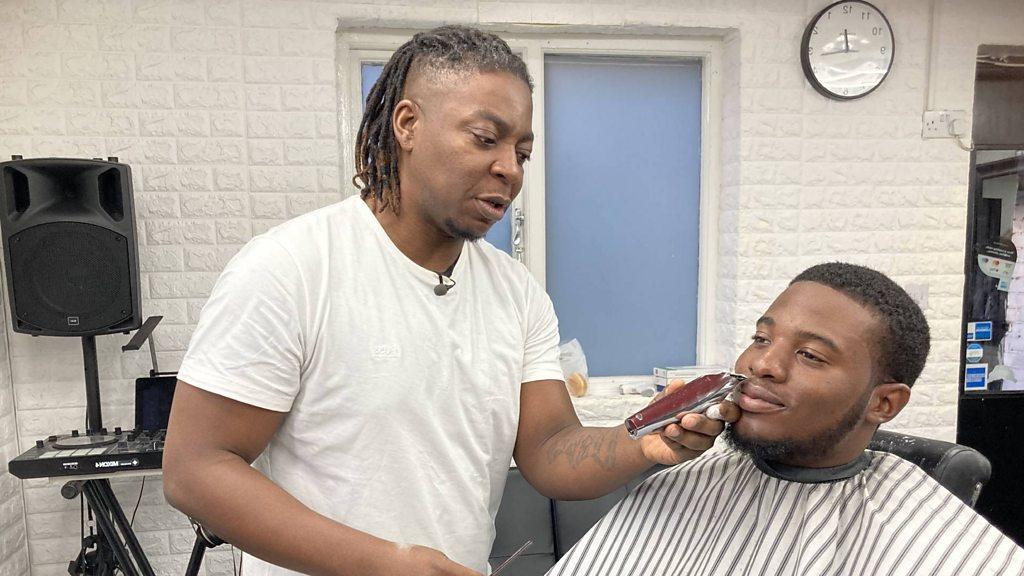Cancer: 'The real work starts when your hair grows back'
- Published
Ross struggled to come to terms with his experiences after cancer treatment
Forty-one percent of young cancer patients seek no mental health support, according to data from a charity.
Young Lives vs Cancer said this was despite 90% of patients reporting that they experienced anxiety, with 70% suffering from depression during chemotherapy.
Former cancer patients are calling for more awareness of the toll treatment can take on their mental health.
Mental Health Awareness Week runs between 15 and 21 May.
'There was no celebration'
Ross Long, who lives in south London, was diagnosed with cancer in 2013 at the age of 16.
His treatment ended early because his kidneys nearly failed.
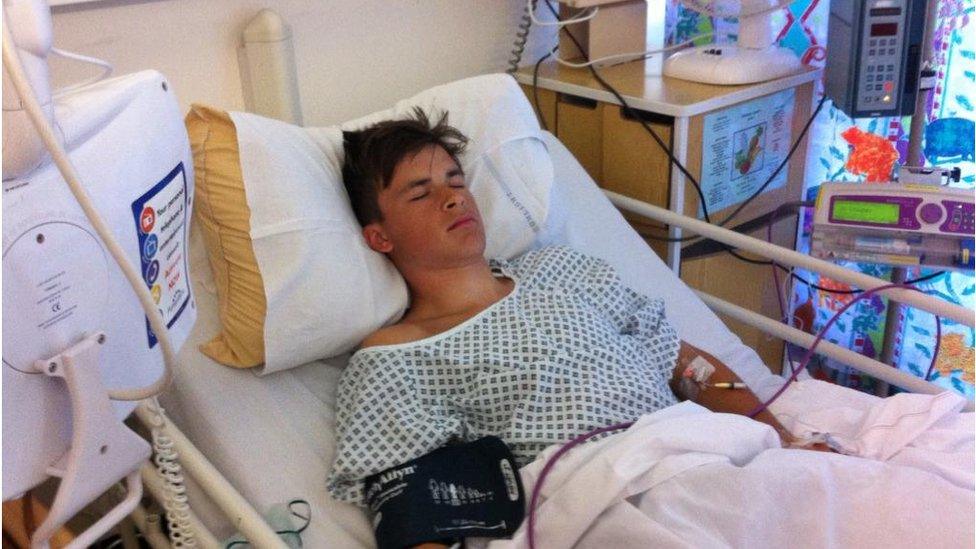
Ross was diagnosed with cancer when he was taking his GCSE exams
"There was no real like, celebration, or bells ringing that you almost see in every film," he says.
He struggled to return to normality after "being in survival mode".
"When your hair starts growing back people think you're automatically fine and that is actually when you're technically doing the real work," he says.
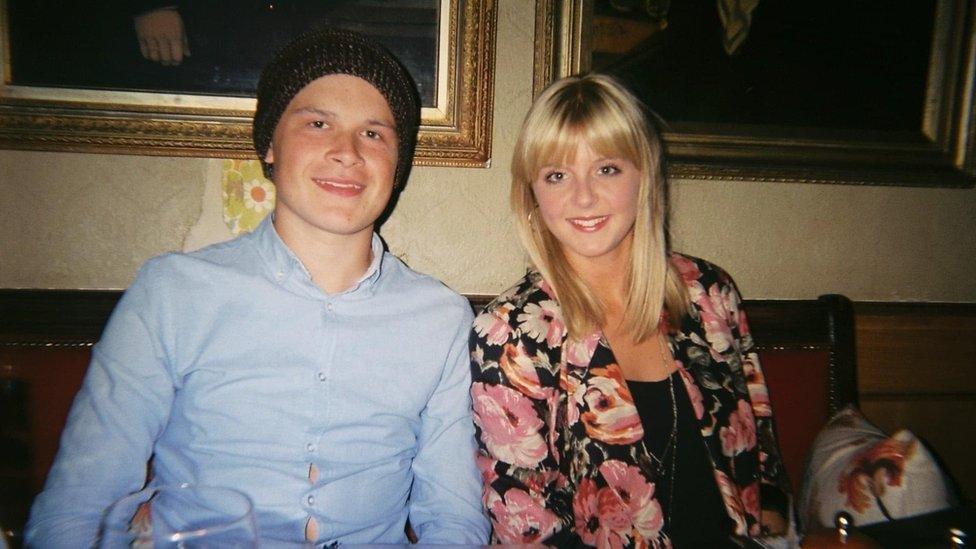
Natalie noticed how Ross struggled with his mental health after treatment
His cousin, Natalie, remembers how during treatment, Ross was "an inspiration" to the rest of the family.
"You seemed to just get on with it and the rest of us were the ones who were kind of, emotionally dealing with it," she says.
It was only after his treatment ended that Natalie noticed how Ross was struggling to come to terms with everything that had happened.
"We had so many late-night conversations when you said, 'This is where the work is'," she says.
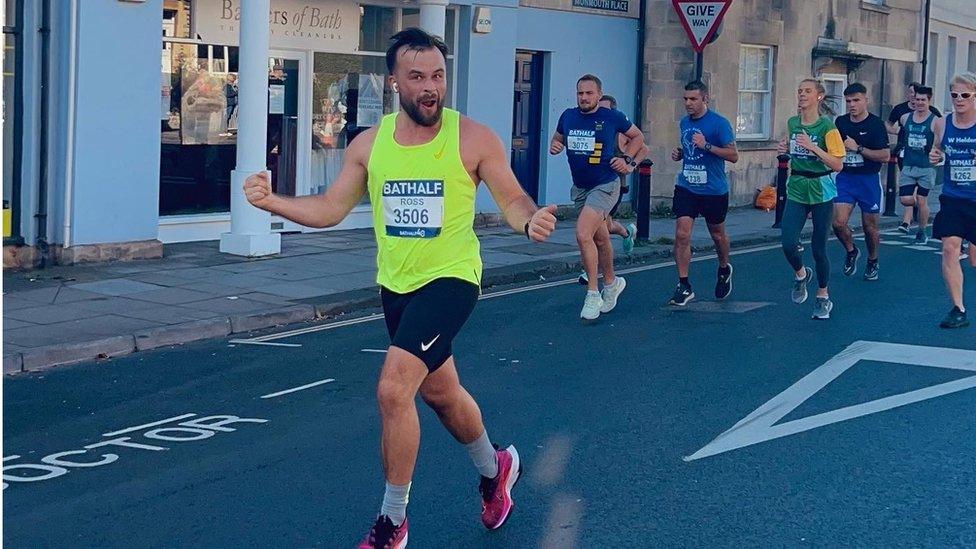
Ross ran the Bath Half Marathon for charity in 2016
To help with his mental health, Ross turned to running as a new "medicine" and did a 10km run in Bristol in 2016 to raise money for CLIC Sargent.
He ran the London Marathon last month for the Children's Cancer and Leukaemia Group, marking 10 years since he was first diagnosed.
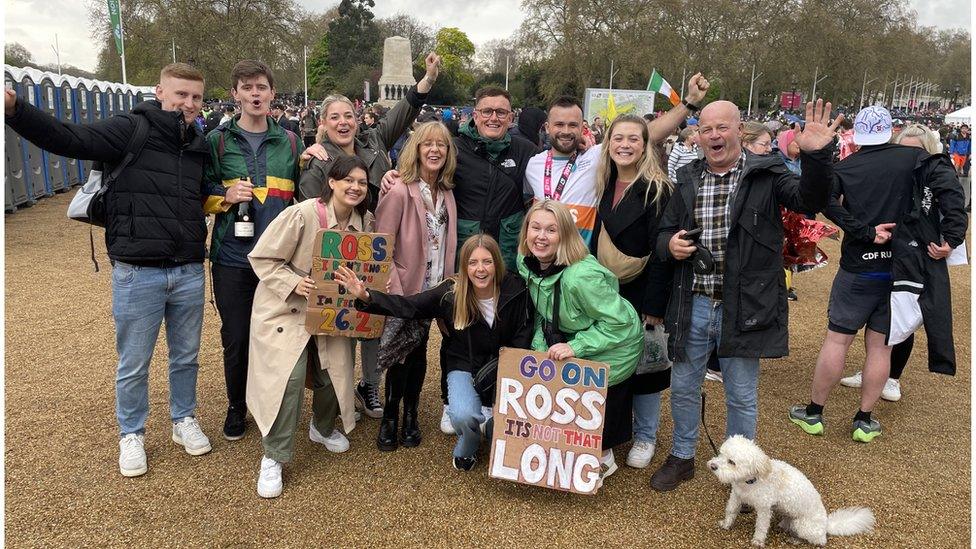
Ross ran the London Marathon 10 years after he was first diagnosed
"The first two questions I asked the doctor were, 'How long have I got to live?' and 'Will I lose all my friends?' he says.
"The fact I'm now running 10 years on with all my friends watching me is something that I'm gonna be very, very proud of."
'I felt embarrassed to say that I had anxiety'
Elisse Moss had just started her final year at university when she was diagnosed with cancer in 2021.
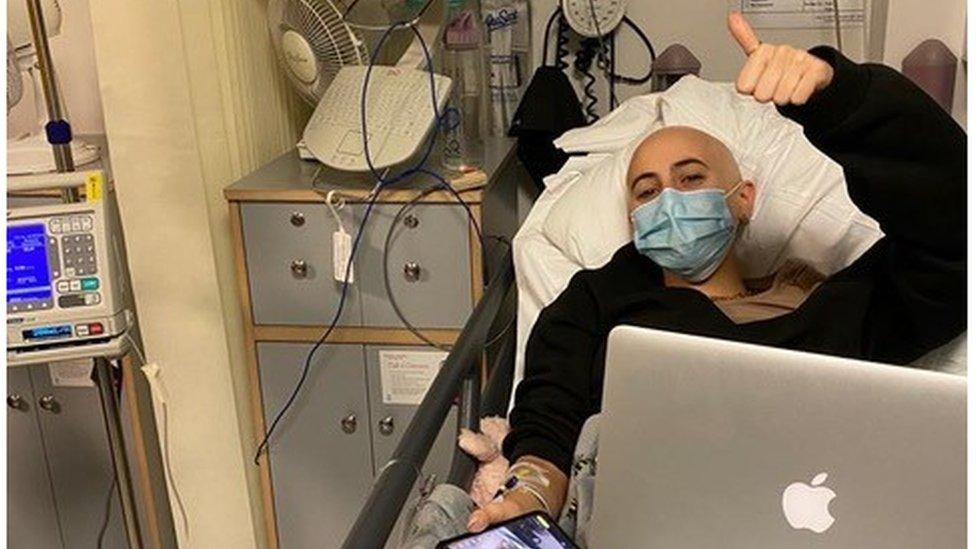
Elisse fought to stay positive while undergoing treatment
"Throughout treatment I was just very positive," she says, describing how she kept on going to the pub and socialising with friends.
"I was like, I refuse to let this kill me. I'm going to keep living my life."
But when chemotherapy ended, Elisse's mental health took a turn for the worse and she regularly struggled with sleepless nights, worrying the cancer would return.
"I felt embarrassed to say that I had anxiety," she says, explaining that opening up about her mental health made her feel like she was putting pressure on others.
"I just felt quite alone."
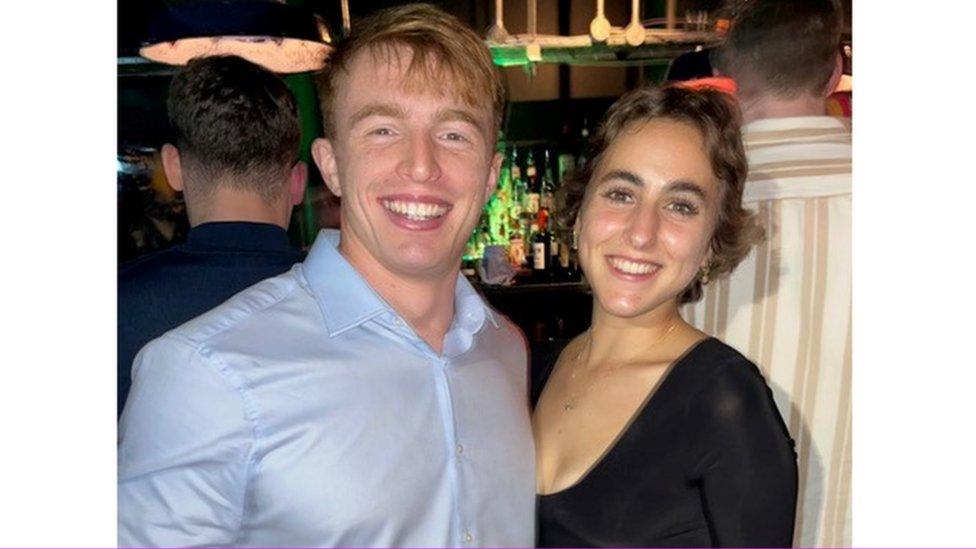
Elisse found it hard to open up about her anxiety
Lyn Soh, a social worker senior practitioner at Young Lives vs Cancer, says Elisse's experience with anxiety after treatment is very common.
She explains that post-treatment support is "so important - because when treatment finishes, they suddenly don't have to attend hospital every week, and don't have regular contact with nurses.
"They can feel left to deal with the 'aftershock' of cancer alone. They have the time to start worrying about their next scan, whether the cancer will come back, and if they will have to go through treatment again."
Like Ross, Elisse found an outlet for her anxiety in exercise and completed a 4km run with her mother after finishing treatment.
She advises anyone recovering from cancer to speak to others who understand what they are going through.
"I'm such a different person because of what it is I've gone through, and I wouldn't change anything," she says.
"It does get easier."

Follow BBC London on Facebook, external, Twitter , externaland Instagram, external. Send your story ideas to hellobbclondon@bbc.co.uk, external
Related topics
- Published6 February 2023
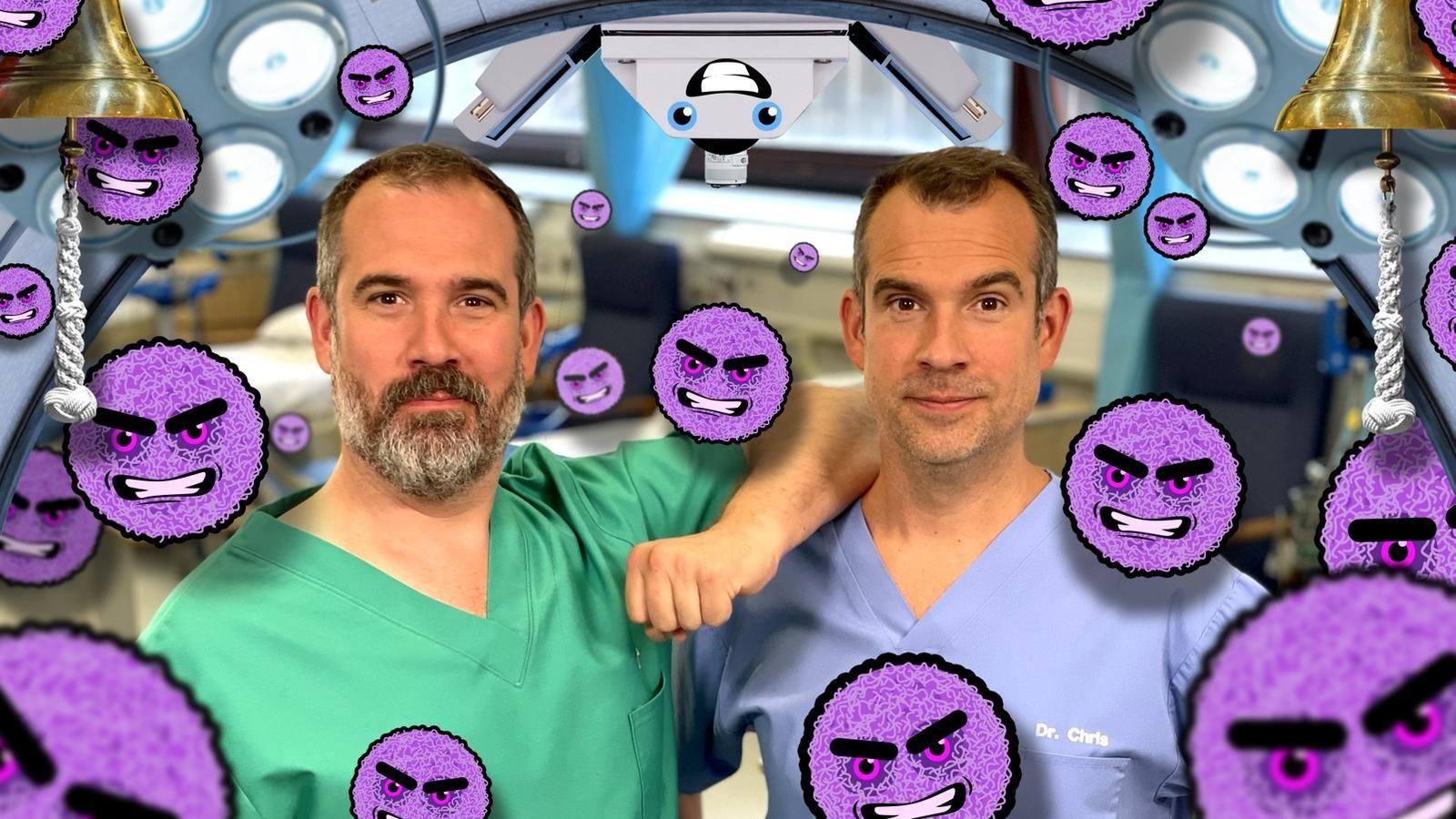
- Published4 January 2023
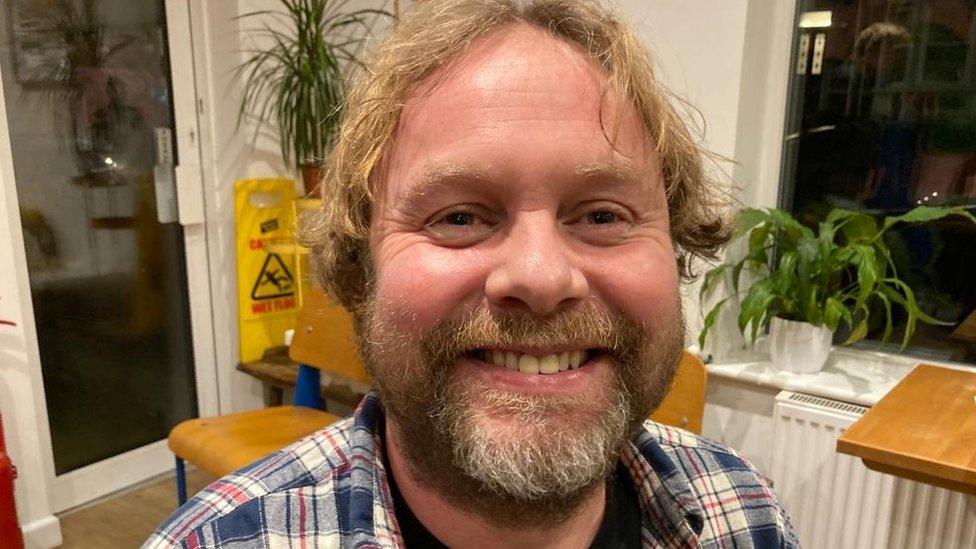
- Published27 December 2022
